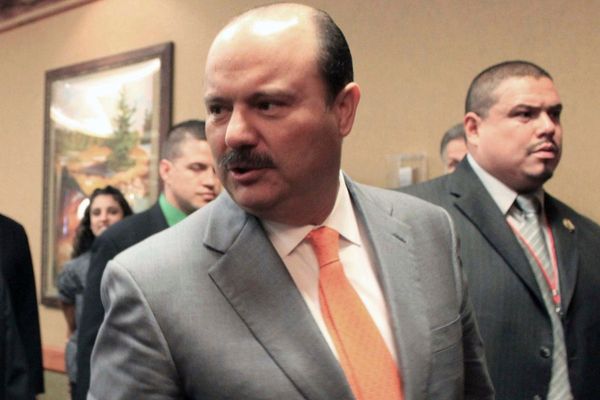
Keir Starmer has said he will look at how international law is being interpreted by British courts in an effort to tackle small boats, which he labelled “Farage boats” because of their increase in number since Brexit.
Speaking after the Labour party conference, the prime minister signalled his unhappiness with how the European convention on human rights was being interpreted by judges making decisions about deportations. But he defended the UK’s membership of the ECHR, saying that ministers “need to look again at the interpretation of some of these provisions, not tear them down”.
Starmer told BBC Radio 4’s Today programme that while “those genuinely fleeing persecution should be afforded asylum … mass migration in a way that we have not seen in previous years”.
The prime minister blamed the impact of Brexit for the surge in the number of illegal Channel crossings. “These are Farage boats, in many senses, that are coming across the Channel,” he said.
Before leaving the EU, the UK was a signatory to the Dublin convention, which states that asylum seekers can be returned to the first member state they arrived in before their claims are considered.
The number of small boat crossings have risen dramatically since Brexit was implemented in 2020, according to Home Office figures. More than 33,000 people have arrived in the UK so far this year, a record since data was first reported in 2018.
“I would gently point out to Nigel Farage and others that before we left the EU, we had a returns agreement with every country in the EU and he told the country it would make no difference if we left. He was wrong about that,” Starmer told GB News.
He added that the government needed to “ramp up” its new returns agreement to send migrants who have crossed the Channel back to France, in exchange for people with genuine asylum cases who have not attempted to cross.
Pressed for details about what was blocking deportations of foreign criminals, Starmer cited articles 3 and 8 of the ECHR, which ban torture and protect the right to private and family life respectively.
Ministers have expressed concerns previously that both articles are being interpreted too broadly by judges when deciding whether someone convicted of a crime can be deported to their country of origin.
Starmer was speaking following the conclusion of Labour’s annual conference in Liverpool, where he made a speech criticising Farage as someone who had never “liked or believed in Britain”.
He said the country was facing an “era-defining choice” between Labour and the populist right and questioned whether Reform UK loved “our beautiful, tolerant, diverse country” or simply wanted to “stir the pot of division because that’s worked in their interests”.
Speaking to broadcasters afterwards, Starmer said he did not think Farage was himself racist but reiterated that his latest immigration policy was.
Reform UK has pledged to scrap indefinite leave to remain, which would put hundreds of thousands of legal immigrants with that status at risk of deportation. Starmer told Sky News that the announcement had made minorities in the UK feel a “shiver down their throat”.
Farage attacked Starmer following his conference speech and said he was putting Reform UK activists at risk by accusing the party of championing a racist policy.
David Lammy, the deputy prime minister, rowed back on his claim on Tuesday that Farage had “flirted with Hitler Youth”, a statement apparently referring to allegations from 2013 that the Reform leader had sung Nazi songs as a schoolboy. Farage denied the allegations at the time.
Pat McFadden, the work and pensions secretary, said on Wednesday morning that Starmer had “shown real fightback” and “drawn a line” under the questions over his leadership that had overshadowed the lead-up to the conference.
“There were plenty of them. I think it’s a different feeling at the end of the conference compared with the beginning,” he told BBC Radio 5 Live. “We had a couple of difficult stories and resignations in the early part of September in the run-up to the conference and I think the prime minister with his speech yesterday has drawn a line under that, shown real fightback and also importantly a real belief in what makes Britain great.”
Sonya Sceats, chief executive of the charity Freedom from Torture, said “chipping away at Article 3 of the ECHR risks setting in train the destruction of the absolute ban on torture – the most appalling form of abuse – which Britain helped forge and champion over centuries.”
“This isn’t who we are as a country. Public support for the torture ban in the UK is strong and growing as others break with the international rule of law. Caring people across Britain are horrified to see political parties scapegoating refugees as a pretext for rolling back rights that keep everyone safe from abuse.”







